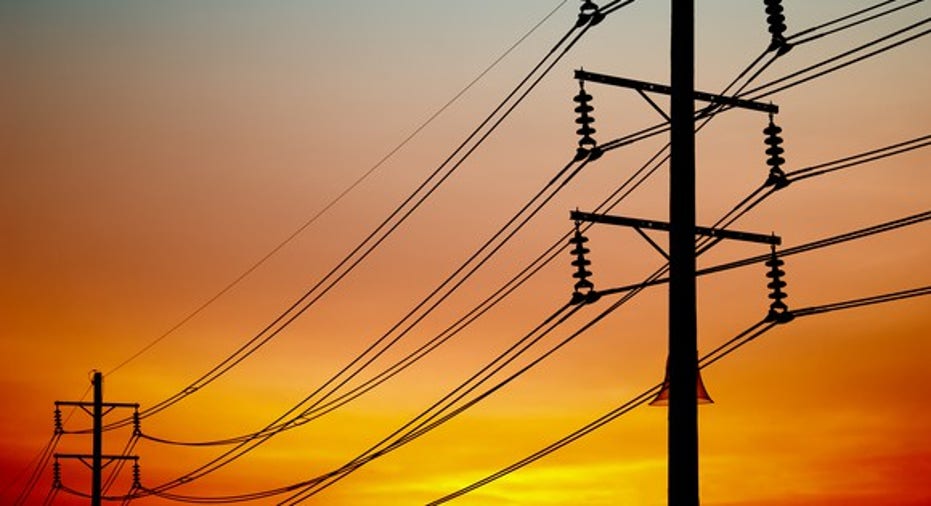Why Consolidation is the Name of the Game in the Utility Space

Another utility merger is coming in the U.S. electricity sector, continuing a long-running trend in the industry. This time, Great Plains Energy is buying Westar Energy for $8.6 billion in a deal that will consolidate utilities in Missouri and Kansas.
Electric utilities across the country are coming under fire from slowing consumer demand growth, greater regulatory costs, and more competitive options for power. That's resulted in a need to cut costs, and at a time when scale can be a big advantage, that's often meant industry consolidation.
Why two more utilities are combining
In talking about the acquisition of Great Plains Energy and Westar Energy, CEO Terry Bassham pointed to "rising customer expectations, increasing environmental standards, and emerging cybersecurity" as big drivers of the decision to buy Westar Energy. Let's unpack those elements and see why it may make sense for a bigger company to serve customers.
Rising customer expectations really comes down to customers' demand to have things like an easy-to-use online interface, updated data about usage, and the ability to buy energy from a more diverse set of energy sources, including self-production from solar energy. With home energy upgrades such as using Nest thermostats,installing solar panels on roofs (1 million U.S. homes have them),or switching to LED light bulbs, consumers are getting smarter about energy consumption. And that means utilities have to interact with customers in a smarter way. Everything -- from the online experience to incentive programs -- matters. So, if you service 1.5 million customers, as the combined company will, you can get scale out of these programs and save money.
Environmental standards have been a cause of frustration in the electric industry for a long time, but it's getting worse today. Regulations on everything from mercury to CO2 have meant the shutdown of hundreds of coal plants across the country and a boom in renewable-energy generation, even in Missouri and Kansas. Again, building a bigger organization to more efficiently adapt to these regulations and have more buying power when creating new generation plans is expected to be a positive for utilities.
Cybersecurity is another area where scale can be helpful. A small utility won't have the resources to protect itself from a cyberattack, something that's become a big concern for the industry, so creating scale is important.
All of these considerations are meant to lower costs, but having a bigger utility also gives leverage when it comes to financing and negotiating with suppliers. Those may be factors pushing for a deal as well.
Utilities are looking to get bigger
One commonality among utilities across the country is that they can see the status quo won't work forever. There are too many threats and other energy options available to customers, and companies cannot simply stand still with their monopoly business. But they're taking different strategies into the future.
Duke Energy spent $4.9 billion to buy Piedmont Natural Gas, diversifying its business into natural gas delivery. It's also using its unregulated arm to buy renewable energy projects across the country with long-term energy delivery contracts. At a time when regulated returns are waning, renewable energy at least provides predictable earnings.
Southern Company is taking a similar strategy, buying wind and solar plants across the country. It recently acquired AGL Resources to add to its natural gas portfolio. Like Duke Energy, Southern Company was seeing growth wane in electricity, and with sufficient scale already built in the electric side, it made sense to add natural gas and renewable energy to its portfolio.
These are examples of recent acquisitions that show how utilities are having to adapt to new market conditions to grow, or at least maintain, their profits. Great Plains Energy and Westar Energy are seeing the dynamic from a different scale, but also see acquisitions as a way to adapt to the changing market.
The factors that are threatening utility profits aren't going away. Expect to see more mergers in coming years, whether they're for scale, diversification, or adding cleaner energy to the portfolio. Both regulatory and customer-driven changes are pushing the industry to change as the threats to utilities grow.
The article Why Consolidation is the Name of the Game in the Utility Space originally appeared on Fool.com.
Travis Hoium has no position in any stocks mentioned. The Motley Fool recommends Southern Company. Try any of our Foolish newsletter services free for 30 days. We Fools may not all hold the same opinions, but we all believe that considering a diverse range of insights makes us better investors. The Motley Fool has a disclosure policy.
Copyright 1995 - 2016 The Motley Fool, LLC. All rights reserved. The Motley Fool has a disclosure policy.



















